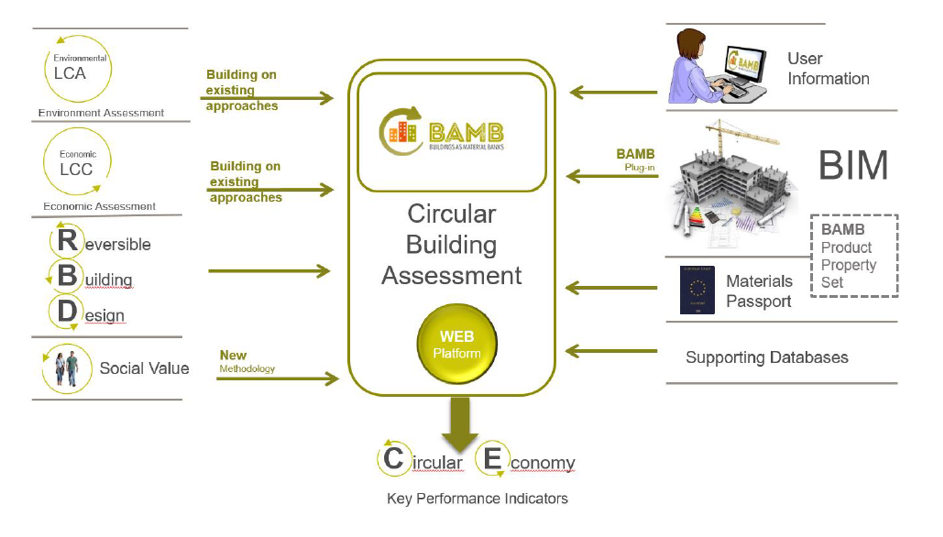For the realisation of each construction and refurbishment project within Reburg many decisions regarding the building configuration and choice of building products and components have been made. In order to support decision-making processes in an effective way, the performance and added value of each design option for the user(s) and society has to be carefully compared before making a selection.
Many building professionals within Reburg use a circular building assessment tool to evaluate the potential consequences of using reclaimed products instead of new ones, using demountable building components instead of fixed ones, and extending the service life of buildings by supporting multiple functional changes instead of a static monofunctional design.
Such assessment studies require a life cycle approach, in which multiple sustainability aspects, such as environmental impact, financial costs, health consequences and social value of the building, are included. Typical design indicators, such as reuse potential and transformation capacity of a building, are also used to support the reversible building design process:

Source: BAMB
To simplify the circular building assessment process, a lot of building and building product data is extracted via building information management and materials passports.